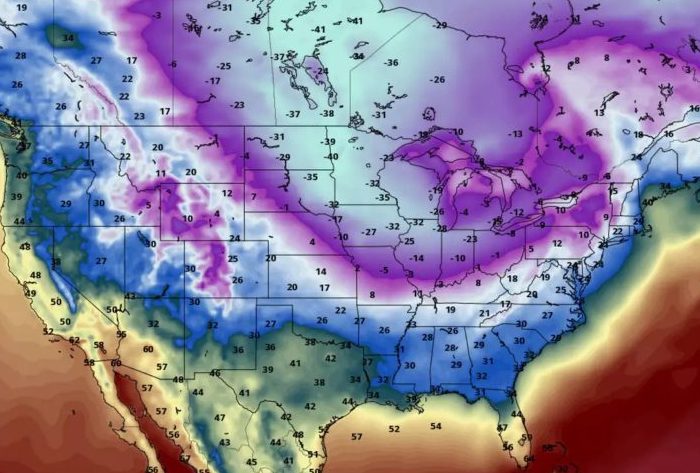It’s weeks like this when you learn what ‘cold’ really means. The midwest has seen new record lows all across the region. The kind of cold that only fossil fuels can hold at bay. Assuming you’ve got them in adequate quantities. Which it appears they do not.
Gas companies are asking their customers to keep the inside warming to a minimum — a recommended 63 degrees.
Global Warming will do that to you.
The Northeast is in worse shape. The voters just don’t know it yet.
Planning for Failure
New Hampshire’s energy plan is to shutter plants without replacing capacity. And no pipelines anywhere. As if these abundant delivery systems are more dangerous to residents than a week of sub-zero temperatures that result in a shortage of heating fuels that also generate cheap electricity. If only you will let them.
The reason energy prices are so easy to forecast in New England is simple: Hyper-localism and enviro-ideology have blocked construction of several needed natural gas pipelines into the region in the past decade, leaving it the only part of the country that has constrained supplies of natural gas.
These are the same people that want to dump home and hearth warming fossil fuels (when they are not trying to tax the crap out of them) for useless wind and solar. Energy systems that can’t begin to touch the needs of a modern society without GAS POWERED Plants to back them up! And even then, they leave much to be desired.
Experts my ass.
This is a serious problem that no one is taking seriously.
“… the problem is so severe that emergency measures will likely be necessary almost every winter by the mid-2020s, with the grid operator estimating that rolling blackouts would be necessary in 19 out of the 23 scenarios they studied.
ISO New England’s study concluded with a blunt assessment of the problem: “while the use of natural gas for both heating and power generation is growing, the natural gas supply infrastructure is not expanding at the same pace, resulting in natural gas supply constraints in winter. Given the region’s current and growing reliance on natural gas, limitations on the region’s natural gas delivery infrastructure are the most significant component of New England’s fuel-security risk.”
A few wood-burning plants hitting rate-payers wallets won’t fix it, but that appears to be the biggest energy priority for New Hampshire. Right after preventing anyone from adding necessary infrastructure to make sure we don’t freeze to death.
You Can’t Get Here from There
But we don’t want to bring it on trains, and existing law makes it almost impossible for the Northeast to take advantage and massive US gas deposits. No infrastructure. So, we’re paying more to buy our LP gas from Russia!
It turns out the Jones Act blocks shipments between U.S. ports from ships that aren’t built in the United States or owned by U.S. citizens. While this wasn’t an issue during the mid-20th century, over the past several decades the commercial ship-building industry in the United States has become completely uncompetitive. As a result, the Massachusetts Department of Energy Resources now complains that there are “no Jones Act-qualified carriers” to ship gas to the Northeast, and that even if there were, the shipping costs are 3-5 times higher than those of foreign vessels.
This unfortunate set of circumstances means that when natural gas supplies run short, New England receives most of its liquefied natural gas (LNG) from Trinidad and Tobago and sometimes from Russia — yes that Russia! Through the first nine months of 2018, the facility at Everett, Massachusetts, was forced to import 48 billion cubic feet of natural gas, enough to power 240,000 homes in the region for a year, from other countries.
You can thank the no pipeline enviro-ideology for that and everyone who supports it — the NIMBY folks. And in a few years when New England has rolling blackouts in January or February, and people are in danger of freezing to death, they’ll demand the government do something. Just not anything that will actually address the problem. Which is a union of souls when you think about it. Doing everything but what will address problem is what government does best.
